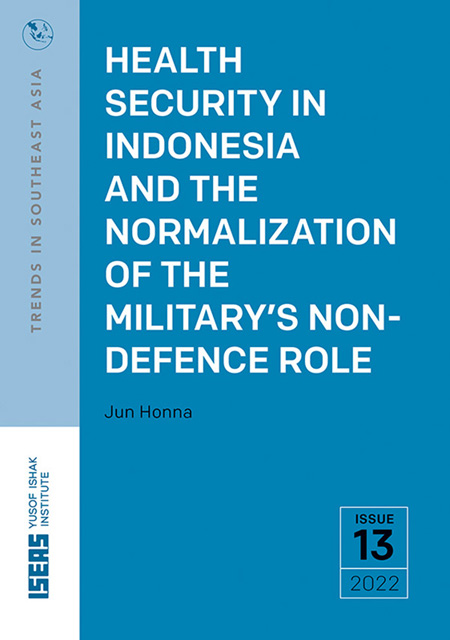
- Publisher:
- ISEAS–Yusof Ishak Institute
- Online publication date:
- June 2023
- Print publication year:
- 2022
- Online ISBN:
- 9789815011838
- Series:
- Trends in Southeast Asia

Like many countries, Indonesia’s armed forces (TNI) have been engaging in health security activities since the outbreak of the COVID-19 pandemic in March 2020. The pandemic has made TNI popular in society owing to its visible dedication to crisis response at the grassroots level. It is important to clarify how this became possible and the impact it has had from the perspective of civil-military relations. TNI’s widening and deepening involvement in health security is the product of the normalization of 'military operations other than war' (MOOTW). The 2004 TNI law restricted non-defence missions and required that ad hoc arrangements to undertake such non-war emergency missions gain parliamentary approval. TNI has skilfully used patriotic propaganda to justify its COVID-19-linked activities by invoking the spirit of the war of independence. In doing so, military elites have stoked nationalist sentiments to blunt military reform measures and normalize their role expansion. This is a new development in the history of TNI’s MOOTW; operations related to counter-terrorism and disaster relief in the past - for example, the 2018 natural disasters in Lombok and Palu - were limited in time and space. In this sense, the COVID-19 crisis should be understood as an important game changer in the country’s post-authoritarian civil-military relations.
 Loading metrics...
Loading metrics...
* Views captured on Cambridge Core between #date#. This data will be updated every 24 hours.
Usage data cannot currently be displayed.